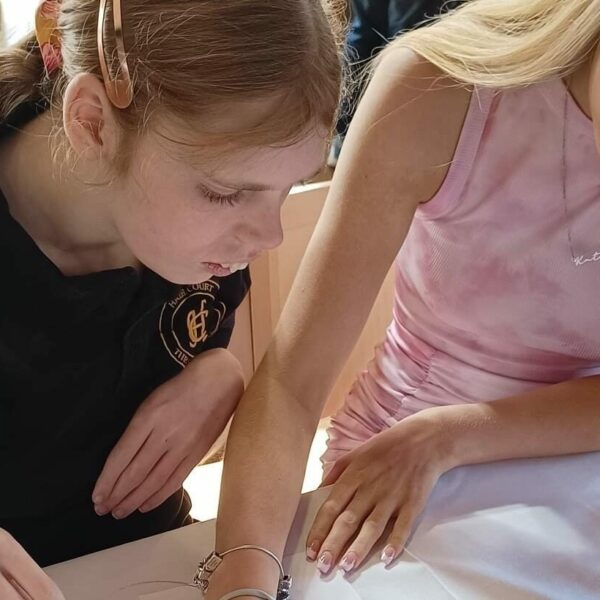Universal Credit
What is Universal Credit (UC)?
Universal Credit (UC) is an integrated, means-tested benefit for people in or out of work. UC replaces many legacy benefits and includes allowances for adults, additions for children, childcare costs, limited capability for work, caring and most importantly housing costs.
Anyone still claiming Income Support, Income based Job Seekers Allowance, income related Employment and Support Allowance, Tax Credits or housing benefit and reporting a change of circumstances or a break in their claim will be moved to Universal Credit.
If you have a health condition or disability which prevents you from working, or limits the amount of work you can do, Universal Credit can provide you with both financial and work-related support.
Citizens Advice have specialist ‘Help to Claim’ advisors to support vulnerable claimants with Universal Credit claims. In England you can contact this service on 0800 1448444.
You need an email address to start a Universal Credit claim. If the household is already claiming UC, a young person will need an email address of their own.
Who can get UC?
You can apply for Universal Credit if you are on a low income or unemployed. You will usually only be able to claim Universal Credit if you are aged 18 or over and not in full-time education, but there are some exceptions and these include some disabled young people.
If you’re a disabled young person aged 16 or 17
- you have medical evidence and are waiting for a Work Capability Assessment
- you’re caring for a severely disabled person
- you’re responsible for a child
- you’re in a couple with responsibility for at least one child and your partner is eligible for Universal Credit
- you’re pregnant and it’s 11 weeks or less before your expected week of childbirth
- you’ve had a child in the last 15 weeks
- you do not have parental support, for example you’re estranged from your parents and you’re not under local authority care
If you’re 18 or over and studying full-time
- you do not have parental support and you’re not under local authority care
- you have limited capability for work and you’re entitled to Personal Independence Payment (PIP) or Disability Living Allowance (DLA)
- you’re responsible for a child
- you’re in a couple with responsibility for a child and your partner is eligible for Universal Credit
If you’re 18 or over and in training or studying full-time
You can make a new claim for Universal Credit if any of the following apply:
- you live with your partner and they’re eligible for Universal Credit
- you’re responsible for a child, either as a single person or as a couple
- you’re in further education, are 21 or under and do not have parental support, for example you’re estranged from your parents and you’re not under local authority care
If you’re moving from Employment and Support Allowance (ESA)
Work Capability Assessments
When you apply for Universal Credit, you’ll be asked if you have a health condition or disability that affects your ability to work. If you do, you’ll be asked to complete an assessment form and provide medical evidence.
You’ll then be told if you need an appointment for a Work Capability Assessment. This is to see how much your illness or disability affects your ability to work. If you need one, you’ll get a letter with a time for an appointment. Assessment appointments can take place face to face, by telephone or by video. Your appointment letter will set out how it will take place.
Face to face assessments
It’s very unlikely that severely disabled young people will be asked to attend a face-to-face assessment. Nevertheless, be sure to send as much supporting evidence, and give as detailed an account of how they cope with daily activities, their communication or access needs as you can, to avoid unnecessary interviews.
Many other young people will be required to attend a face-to-face assessment. For most claimants, and especially disabled young people, the idea of going for a face-to-face interview is likely to feel overwhelming. There is a lot you can do to make this a fair and a positive experience. Amaze produces a fact sheet about PIP face to face assessments . Much of the advice is useful for WCAs too.
A young person should always have someone to support them and may need help to think about who’s the best person to ask. It needs to be someone who is both ‘on their side’ and understands how their disability impacts on everyday life. This can be a friend, support worker, or health, education or social care practitioner. Usually we think it’s most likely to be their parent or carer.
Assessment outcomes
There are three possible outcomes from a Work Capability Assessment. You will be assessed as one of the following:
- Fit for work – This means you will be expected to look for work or to increase your earnings. You will not receive any additional amounts of Universal Credit due to sickness or disability.
- Having limited capability for work (LWC) – This means that although you may not be able to look for work now, you can prepare for work with the aim of working at some time in the future. If you are claiming benefit for the first time and have never had a Work Capability Assessment before, you will not receive any additional amounts of Universal Credit due to a health condition or disability.
- Having limited capability for work and work-related activity (LCWRA) – This means you will not be asked to look for work, or to prepare for work.
You will get paid more Universal Credit due to your sickness or disability. You will receive the limited capability for work and work-related activity component of Universal Credit.
If you are working
You must let the Department for Work and Pensions know if:
- your condition has got better
- your condition has got worse, or
- you have a new health condition
If you are already getting Universal Credit and develop a health condition or become disabled, you must tell the Department for Work and Pensions as soon as possible. Your Claimant Commitment will be reviewed to take into account your new circumstances.
A word about recent Work Capability Assessment changes
In his 2023 autumn statement, the Chancellor announced changes to the WCA for new claimants that will come into effect from 2025. The new rules do not affect existing claimants. See Disability Rights information about the changes.






